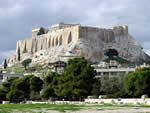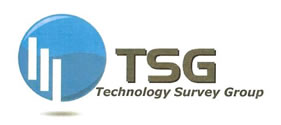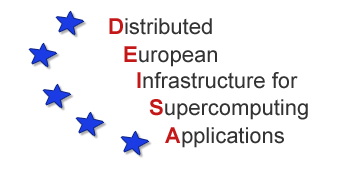

 |
The First Workshop on Computational Trust for Self-Adaptive Systems SELFTRUST 2009 November 15-20, 2009 - Athens/Glyfada, Greece |
This workshop is part of ADAPTIVE 2009.
|
||||||||||
| Publishing Information: |
All CPS Publications are included in the IEEE Xplore All CPS Publications are archived in IEEE Computer Society Digital Library (CSDL) Authors of selected papers will be invited to submit extended versions to a IARIA Journal |
| Submit a Paper: |
First, fill out the submission form with information about your paper. Please, fill it out only once for each paper, and do not resubmit it. Contact the address below if you run into any difficulties.
As the designated correspondence author, you will then receive a first e-mail message containing the paper ID. The information in the email will allow you to submit your paper.
If you have some problems send your paper via this e-mail (please report your paper ID in the text of your mail AND the name of the conference).
The conference staff will contact you only if the paper does not print properly or has other problems.
You can change information about your paper, submit brief corrections, view your reviews and create rebuttal, and even edit your personal information by following the link in the initial confirmation email.
| Touristic Information: |
Touristic information is available from the hosting conference, ADAPTIVE 2009.
| Hotels and Travel: |
Hotels and travel information is available from the hosting conference page, ADAPTIVE 2009.
| Call for Papers: |
Today digital world appears as a multitude of self-organizing entities that interact trough collaboration and negotiations. Examples include web 2.0 applications such as forums, blogs, business digital eco-systems, p2p systems, ad-hoc networks. The lack of centralized authority forces cooperations with unknown and potentially harmful entities, that represents a threats for any adaptive systems working in an open and collaborative environment. Trust appears a key-component for a successful adaptation. By assessing the trustworthiness of potential partners and the environments, as well as risk and threads, adaptation and self-organizations is more reliable and effective. The last decade has seen the emerging of computational systems based on the human notion of trust, in several applications.
Trust can support adaptation in the selections of resources, altering of useless, not pertinent or even malicious entities: it can make adaptation safer, more focused. Trust reduces the complexity of the environment and by selecting only trustworthy entities, adaptation complexity is reduced and made safer.
The workshop focuses on complementary related to trust, such as privacy treatment, security and personalization as necessary component for building a consistent adaptation. This workshop will bring together researchers and experts from different communities (Autonomics systems, Information Systems, Web Services, information Retrieval, HCI) interested in topics like trust, provenance, privacy, security, reputation and spam, in order to address current challenges of their adaptive application to distributed environments such as the Web. The workshop will deliver a state-of-the-art overview, successful research advances in the area as well as guidelines for future research.
- Trust models for adaptive systems
- Trust models for self-organizing and autonomics systems
- Agent-based trust models for cooperation
- Privacy and Security in self-organizing and adaptive systems
- Human and social factors involved in trust and adaptation
- Applications of trust and security on adaptive systems, with a focus on web-based applications, social networks, social search
- Trust models for self-organizing systems of information (wikis, forums, blogs.)
- Trust and personalisation for enabling adaptation
- Models for learning trust and the evolution of trust
- Decentralised trust models
- Case studies
- Theoretical trust models for self-adaptation
INSTRUCTION FOR THE AUTHORS
Important deadlines:
accomodating the summer vacation, the submission deadline is extended| Submission (full paper) | |
| Notification | |
| Registration | August 21, 2009 |
| Camera ready | August 24, 2009 |
Only .pdf or .doc files will be accepted for paper submission. All received papers will be acknowledged via an automated system.
Final author manuscripts will be 8.5" x 11", not exceeding 6 pages; max 4 extra pages allowed at additional cost. The formatting instructions can be found on the Instructions page.
Once you receive the notification of paper acceptance, you will be provided by the Conference Publisher an online author kit with all the steps an author needs to follow to submit the final version. The author kits URL will be included in the letter of acceptance.
Posters
Posters are welcome. Please submit the contributions following the instructions for the regular submissions using the "Submit a Paper" button and selecting the track/workshop preference as "POSTER : Posters". Submissions are expected to be 6-8 slide deck. Posters will not be published in the Proceedings. One poster with all the slides together should be used for discussions. Presenters will be allocated a space where they can display the slides and discuss in an informal manner. The poster slide decks will be posted on the IARIA site.
For more details, see the Posters explanation page.
Work in Progress
Work-in-progress contributions are welcome. Please submit the contributions following the instructions for the regular submissions using the "Submit a Paper" button and selecting the track/workshop preference as "WIP: Work in Progress". Authors should submit a four-page (maximum) text manuscript in IEEE double-column format including the authors' names, affiliations, email contacts. Contributors must follow the conference deadlines, describing early research and novel skeleton ideas in the areas of the conference topics. The work will be published in the conference proceedings.
For more details, see the Work in Progress explanation page
Technical marketing/business/positioning presentations
The conference initiates a series of business, technical marketing, and positioning presentations on the same topics. Speakers must submit a 10-12 slide deck presentations with substantial notes accompanying the slides, in the .ppt format (.pdf-ed). The slide deck will not be published in the conference’s CD Proceedings. Presentations' slide decks will be posted on the IARIA's site. Please send your presentations to llongo@cs.tcd.ie or dondiop@cs.tcd.ie
Tutorials
Tutorials provide overviews of current high interest topics. Proposals should be for three hour tutorials. Proposals must contain the title, the summary of the content, and the biography of the presenter(s). The tutorials' slide decks will be posted on the IARIA's site. Please send your proposals to petre@iaria.org
Panel proposals
The organizers encourage scientists and industry leaders to organize dedicated panels dealing with controversial and challenging topics and paradigms. Panel moderators are asked to identify their guests and manage that their appropriate talk supports timely reach our deadlines. Moderators must specifically submit an official proposal, indicating their background, panelist names, their affiliation, the topic of the panel, as well as short biographies. The panel's slide deck will be posted on the IARIA's site.
For more information, please contact llongo@cs.tcd.ie or dondiop@cs.tcd.ie
| Committees: |
SELFTRUST Advisory Chair
Petre Dini, Cisco Systems, Inc., USA / Concordia University, Canada
SELFTRUST 2009 Program Committee Chairs
Luca Longo, Trinity College Dublin, Ireland
Pierpaolo Dondio Trinity College Dublin, Ireland
Committee Members
Adrian Baldwin - Hewlett Packard Laboratories - Bristol , UK
Stephen Barrett, Trinity College Dublin, Ireland
Marco Benini, Universita' degli Studi dell'Insubria - Varese, Italy
Marco Casassa Mont - Hewlett-Packard Laboratories, Bristol , UK
Vieri del Bianco, University College Dublin, Ireland
Kesdogan Dogan, Institut für Wirtschaftsinformatik Hölderlinstr - Siegen, Germany
Pierpaolo Dondio, Trinity College Dublin, Ireland
Sandro Etalle, Technical University of Eindhoven, Netherlands
Luis Javier Garcia Villalba, Universidad Complutense de Madrid, Spain
Federico Gobbo, Universita' degli Studi dell'Insubria - Varese, Italy
Peter Hermann, Norwegian University of Science and Technology - Trondheim, Norway
Audun Jøsang, University of Oslo , Norway
Kiran Lakkaraju, Seibel Center for Computer Science - Urbana, USA
Neal Lathia, University College London, UK
Stephan Lo Presti, Brunel University, United Kingdom
Luca Longo, Trinity College Dublin, Ireland
Emiliano Lorini, Institut de Recherche en Informatique de Toulouse, France
Stefan Poslad, Queen Mary University of London, UK
Sebastian Ries, Darmstadt University of Technology, Germany
Sotirios Terzis, University of Strathclyde, Glasgow, UK
Laurence T. Yang, St. Francis Xavier University, Canada
| Tutorials: |
Tutorials are available from the hosting conference page, ADAPTIVE 2009.
| Preliminary Program: |
Preliminary program is available from the hosting conference page, ADAPTIVE 2009.
| Manuscript Preparation: |
Manuscript preparation is available from the hosting conference page, ADAPTIVE 2009.
| Registration Form: |
Registration form is available from the hosting conference page, ADAPTIVE 2009.
| Statistics: |
Statistics are available from the hosting conference page, ADAPTIVE 2009.
| Photos: |
Photos are available from the hosting conference page, ADAPTIVE 2009.
| Awards: |
Awards are available from the hosting conference page, ADAPTIVE 2009.





